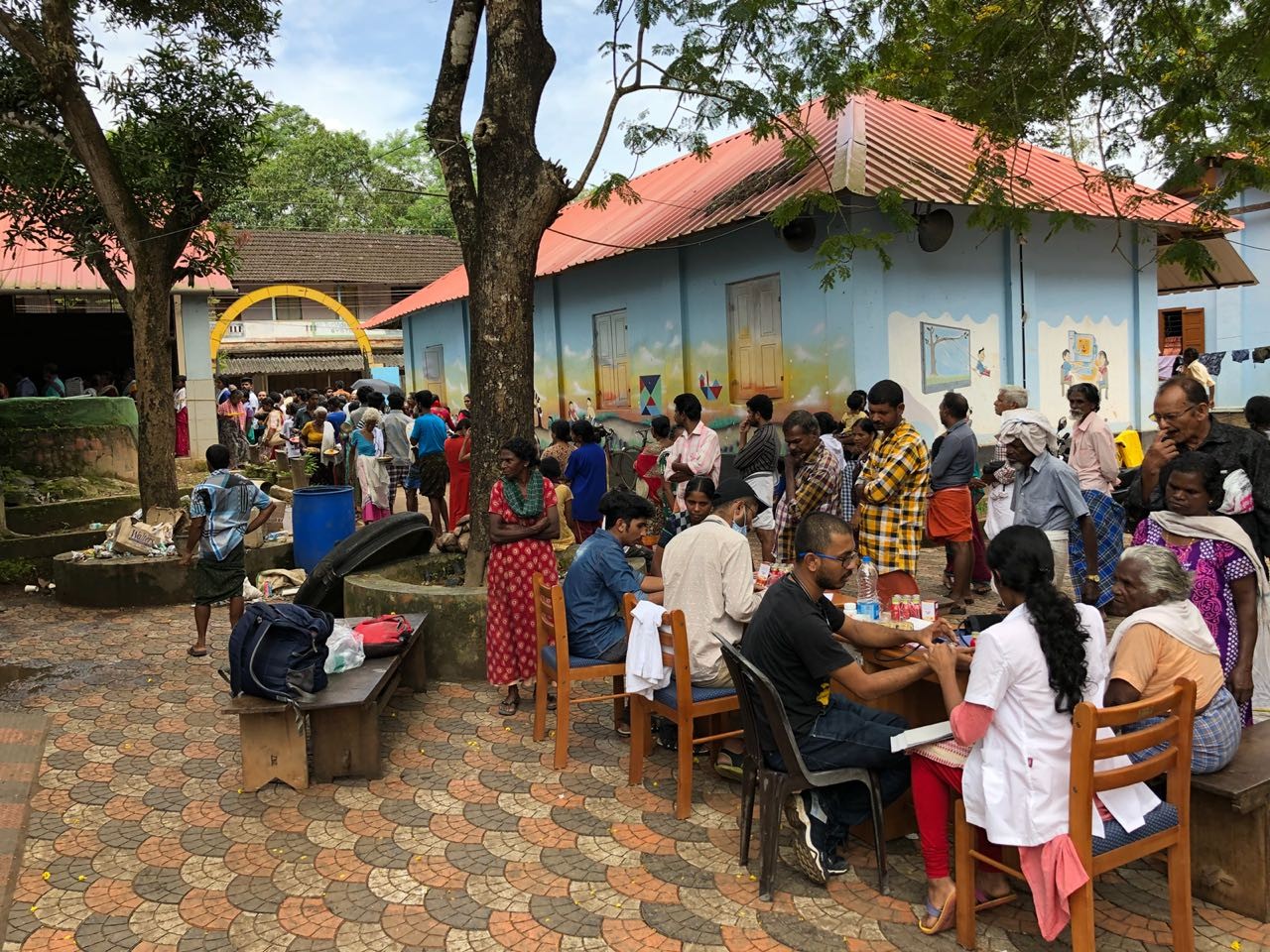Disasters have a devastating effect on any community. Kerala is no exception. With hundreds of thousands of people rendered homeless and the death taking a heavy toll, health professionals all over the country decided to help the state in its darkest hour of sorrow.
A team of 22 healthcare professionals from Mahatma Gandhi Institute of Medical Sciences, Sevagram pitched in to ameliorate the health challenges that victims and survivors of disasters are experiencing in Kerala. The team comprising of faculty, residents, interns, and undergraduates had left Sevagram for Kerala on 22nd August 2018. The team has helped more than 1500 people cope with the misery caused by the fury of nature.
The MGIMS team joined hands with the local administrations and non-government organizations to aid the famine-struck people of Kerala. Divided into four teams (one each at Kottayam and Kothamangalam and two at Ernakulam), each team is working in different geographical areas of the state. Each team comprises of residents, interns, and a few undergraduates.
The team had a dozen of Malayalam speaking students who used their mastery in Malayalam to overcome the language barrier. When the opportunity came for the students to volunteer, they seized it to reach the unreached, explain dos and don'ts in a language people could understand, and considerably eased the burden on the team. It was as though a stroke of destiny that befell on the students from Kerala who had joined the MBBS program in the institute two years ago. The tales of woes they saw in the media struck a chord, sensitive enough to make them volunteer to help the victims.
The team is holding health camps (to treat the flood-affected people), providing training (on disinfection of home, furniture, wells, tanks etc.) and rendering domestic items to people at various relief camping sites. The team is also assessing primary health centers, anganwadis, and schools for the damages and is reporting the same to the state administration. The team identified the possibility of water-borne diseases looming large on the not-too-distant horizon and has designed prevention interventions for diseases such as leptospirosis, scrub typhus, malaria, dengue, hepatitis, and typhoid.
The team is expected to return around 6th September. Meanwhile, the team is helping the state government in administering the deworming tablets and Vitamin A supplements in the school going students. The team is also teaching students how to take measures to prevent vector-borne diseases. Snake bite campaigns shall also be held at various places.
The management of MGIMS supported the Kerala help drive. The employees of the institute pledged a day’s salary to support the relief work carried out in the state. Dr. BS Garg, Secretary Kasturba Health Society congratulated the students for their efforts and said, “MGIMS has a long tradition of extending a helping hand to people in need. I am happy to see that the students and young doctors have voluntarily come forward to provide relief to the victims of the flood". Dr. Nitin M Gangane, Dean, MGIMS who proactively encouraged the students to go to the flood affected villages and towns and coordinated the work is tracking how students and doctors are designing innovative strategies to help the people. Dr. SP Kalantri, Medical Superintendent, Kasturba Hospital said, “I am so happy to see that the team MGIMS is helping people in Kerala cope with the aftermath of rains and floods. Their presence, their support, and their words would go a long way mitigate the misery of Malayalis. I am sure our team will equip the victims with the confidence and courage to handle the problems let loose by the fury of nature.”
The team MGIMS comprises of Dr Amit Singh, Dr Priyadarsh Ture, Dr Vidit Panchal, Dr Pankaj Ukey, Vaibhav Bangal, Savithri Devi, Saurabh Sharma, Anandu Raj, Samir Kumar, Sudhir, Madhur, Chitra Laxmi, Shiju Shivraman, Anjali Mohan, Madhukar Shrop, Ganesh Bhandare, Ashique, Abdul Wahab, Rajendra Yadav, Sudhir Verma, Lalit Chitture, and Dipak Katphode.
"With Kerala limping back to normalcy and people coming to terms with the biggest disaster that they ever faced in life, the team MGIMS has decided to return back. Not only did the team acquire rich skills by working in an unknown and difficult terrain, it also collected lifetime memories created by its spontaneous volunteerism. The Team learned that the most important aspect of disaster relief is to provide for the basic needs of those affected, which include food, drinking water, shelter and emergency medical aid for injuries and diseases. Surely, this experiential learning would stand us in good stead ", said Dr Amit Singh, Assistant Professor of Surgery and one of the teammates.

